What is Qadar in Islam? This concept is also known as destiny or fate in Islam and holds great significance. It stresses believing in divine destiny and destined events. Understanding Qadar in Islam (or Qadr) revolves around accepting that everything, from the tiniest occurrence to monumental moments of life, is predestined by Allah’s will.
The term Qadar in Islam explains the idea that everything in the universe occurs according to the knowledge and Qadr of Allah.

Table of Contents
Understanding Qadar in Islam
Qadar is not merely a passive acceptance of fate in Islam but a proactive approach to life. It does not stop individuals from striving for excellence or making sensible choices. Rather, it encourages individuals to make informed decisions while recognising that the outcomes are subject to the divine plan.
Understanding it involves delving into its complex nature and exploring its wide significance. At its core, it encapsulates the belief in divine destiny and the predetermined nature of events.
Definition and Meaning
What does Qadar in Islam mean? The term derives its roots from the Arabic word (قَدَرْ) meaning “measurement” or “decree.” It states that nothing happens without the verdict and knowledge of the Almighty. Belief in it acts as a keystone of Muslims’ faith. It is intertwined with the exact teachings of Islam.
Different Perspectives and Interpretations of Qadar in Islam
Qadar in Islam has diverse interpretations and perspectives inside Islamic teachings because of its intricate nature. It refers to the heavenly foreordination, or destiny, of all events and outcomes. These include life, death, sustenance, success, and failure. In short, believing Qadar in Islam means having faith that everything is fated by the omniscient Allah.
The Deterministic Characteristics of Qadar in Islam
Some scholars emphasise the deterministic aspect of destiny. According to the perspective on Qadar in Islam, it is believed that everything is predetermined by Allah, leaving no room for human action or free will.
Coexistence of Divine Decree and Human Free Will
A further group of scholars describes the coexistence of divine will and individual free will in Islam. This perspective of Qadar in Islam recognises that, though Allah has declared all things, humans retain autonomy to make choices and be decisive.
This idea of Qadar in Islam aligns with the idea that Allah’s omniscient knowledge encompasses all things, including the choices individuals make within the scope of that knowledge.
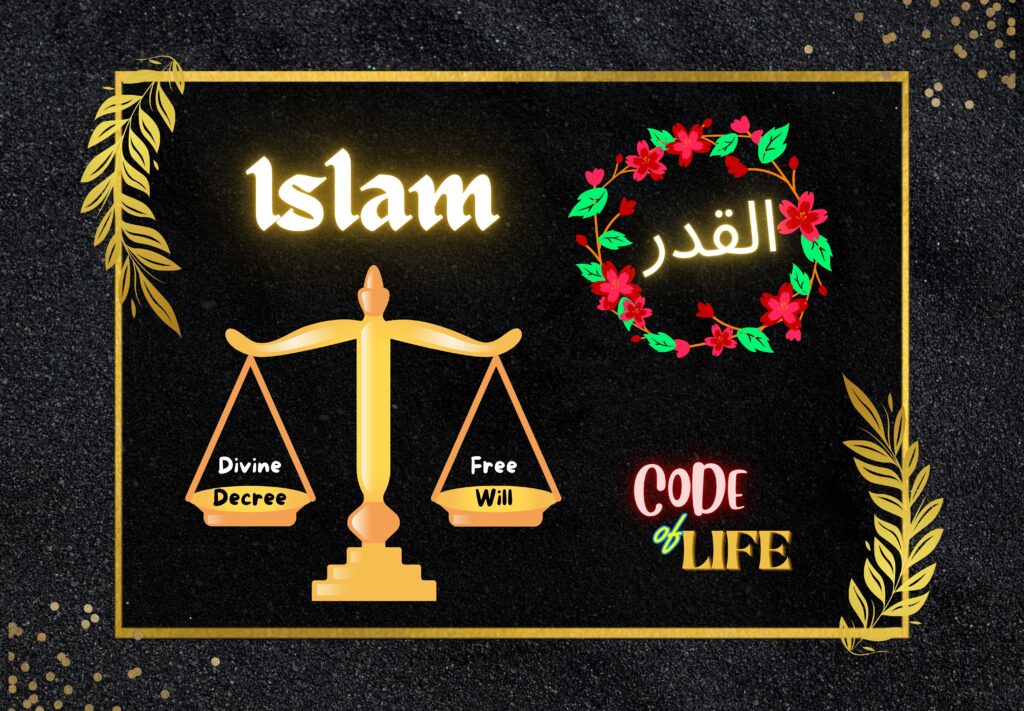
Divine Decree and Its Relation to Human Actions
The interaction between destiny and autonomy represents the core of Qadar in Islam. It emphasises that, certainly, Allah’s ruling is absolute, but individuals are answerable for their matters and selections within the parameters of the heavenly plan.
Constituents of Qadar in Islam
There are four fundamental constituents of Qadar in Islam, and they collectively form the basis of it. The constituents are:
- Allah’s Knowledge (Al-Ilm)
- Allah’s Writing (Al-Kitabah)
- Allah’s Will (Al-Mashi’ah)
- Allah’s Creation (Al-Khalq)
Al-Ilm (The Knowledge):
It refers to Allah’s comprehensive knowledge that surpasses the constraints of time (the past, present, and future) and space. It surrounds every detail of all beings in the cosmos, even the most concealed and minute aspects of creation.
Al-Kitabah (The Writing):
The word states the everlasting recording of Allah’s Qadr in the Preserved Tablet (Al-Lawh Al-Mahfuz) that documents all events and destinies. Al-Lawh Al-Mahfuz holds Allah’s rulings regarding all that will occur. It is a record of destiny that meticulously points to every event, fate, and decree.
Al-Mashi’ah (The Will):
Allah’s Mashi’ah is the execution of His verdict. It ensures that whatever He defines comes to pass and is unchallenged by any opposing force. The Mashi’ah of Allah is the driving agency behind the unfolding of events.
Al-Khalq (The Creation):
Allah is the only Creator of all beings, with His absolute authority over creation. Individuals hold the liberty to pick, but they are eventually subject to Allah’s decree.
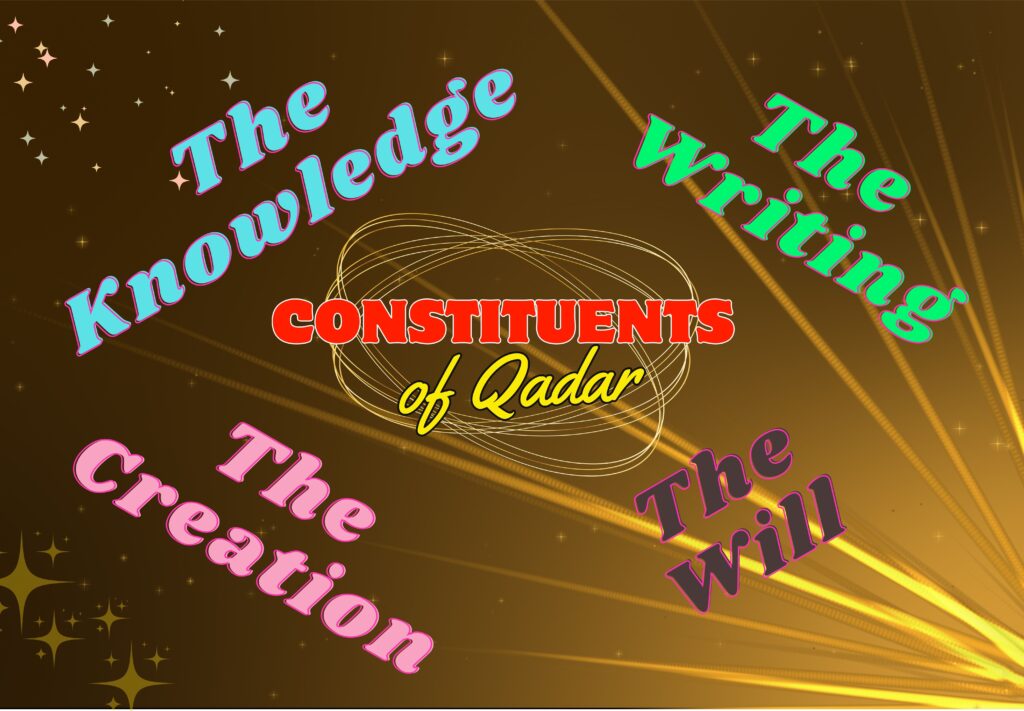
Significance of Belief in Qadar in Islam
Embracing fate fosters unwavering confidence and trust in the wisdom of Allah’s plan. It is the source of hope that illuminates the darkest time of an individual’s life and provides him solace during moments of distress and uncertainty.
Resilience, Acceptance, and Overcoming Distress
The idea of destiny resonates in a believer’s life. Understanding it and believing in it empowers people to navigate the unpredictable ups and downs with unwavering faith. It guides individuals to sail through distress by knowing that everything is a portion of a grander plan crafted by the Creator.
Acceptance of it does not indicate passivity; rather, it nurtures resilience against distress and uncertainty. Thus, the idea of Qadar in Islam imparts resilience and acceptance in the heart of a believer and helps him overcome distress
Faith and Trust
A question that often comes up is, “How does believing in Qadar in Islam foster reliance and trust in the divine plan?”
A believer of Qadar in Islam does not complain when encountering adversity. He believes that there is purpose to everything in life. Eventually, the trials transform into chances for growth for him. At its core, this element nurtures unwavering confidence and trust in the marvellous plan.
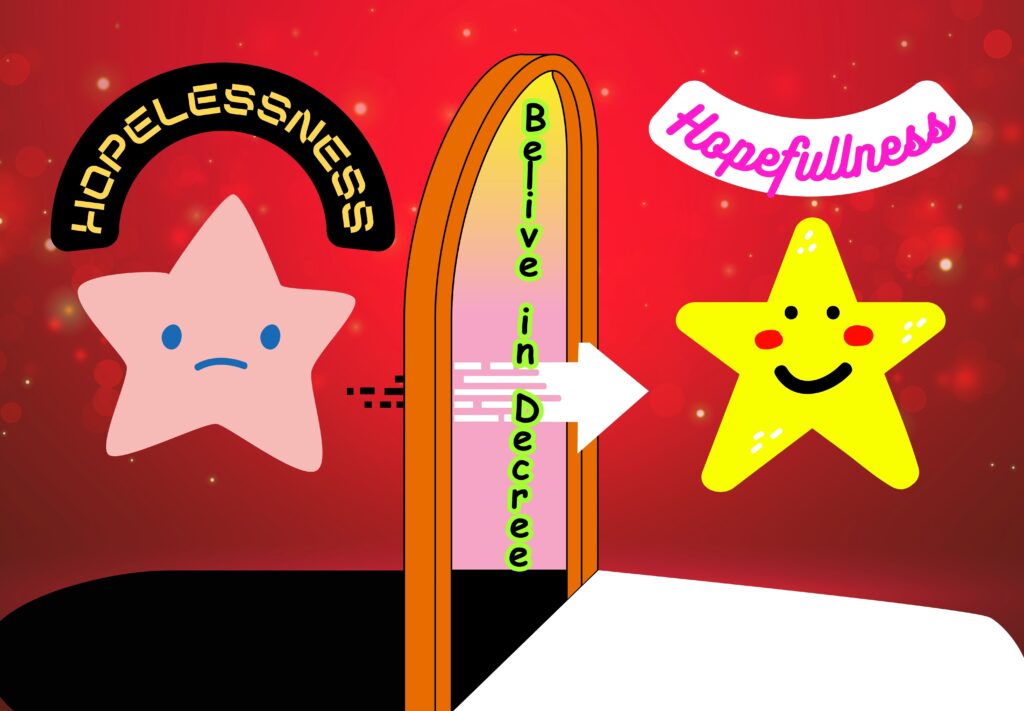
In times of joy or tribulation, the belief of Qadar in Islam serves as an anchor. Through this belief, individuals learn to accept their fate and recognise that every twist and turn in life is part of a greater design—a design that is crafted by the divine hand.
The belief of Qadar in Islam empowers individuals to adapt and grow amidst adversities and fosters an inner strength to face challenges head-on.
Imagine a traveller who is on a journey and is fully aware that there may be unexpected obstacles. This traveller, equipped with the knowledge of Qadar in Islam, faces these obstacles with unwavering resolve. He is aware that each hurdle is a fragment of the journey and is predetermined by Allah Almighty.
Qadar in Islam and Daily Life
Qadar in Islam is not simply a theoretical idea. It is a slice of a believer’s daily life. It influences his decision-making processes and mental comfort.

A Balance between Personal Choices and Divine Decree
Balancing personal interests with fate is like navigating a ship in a vast ocean. A believer of Qadar in Isllam does choose what he desires, but he recognises that the ending is subject to a holy decree. If it is in his favour, it will reach him by the command of Allah, and if not, he will be provided a better alternative for that.
Understanding Responsibility
Those who believe in Qadar in Islam know that destiny is predetermined and individuals are answerable for their activities. They gain an understanding of responsibility from it. This faith fosters a sense of accountability and mindfulness in their daily conduct.
Coping Power of Qadar in Islam
When adversity befalls, the believer of Qadar in Islam draws strength from prayer and patience. They seek comfort in supplication. They know that adversity can be altered within the divine plan through it. Thus, this belief empowers them to endure hardships and navigate through turbulent oceans.

Misinterpretations of Qadar
Destiny is perceived as a might that restricts individuals’ choices by some folks. It is an incorrect thought. Contrarily, Islam teaches that Allah’s ruling is absolute, but people still hold the autonomy to select.
Understanding the balance concerning freedom and holy declaration is crucial to comprehending the depth of destiny. So, it is important to address common misconceptions and clarify misunderstandings about them to foster a right understanding of this fundamental concept within Islam.
Origin of Varied Interpretation
The cause of different interpretations of Qadr is owing to half-done exposure to Islamic teachings. These misconceptions can be clarified by highlighting that destiny never ends individuals’ responsibility or free will.
Common Misconception
Some common misconceptions that must be addressed are listed here.
Misconception 1 (Absolute Determinism)
One misconception is ‘absolute determinism’. It means that human agency does not hold any significance. This is wrong. Though Qadr encompasses foreordination, it does not invalidate human agency. It creates a harmony between Allah’s decree and individuals’ choices.
Consider an artist who portrays a stunning painting with the overall scene but leaves room for the brushstrokes of distinct expression. Believing Qadr means that Allah’s design is already prepared, but people are responsible for their actions.

Misconception 2 (Fatalism and Accountability)
Debunking myths about destiny is that it leads to despair or the absence of personal accountability. Islam stresses individual obligation and proactive participation in life. It never means passively accepting fate but admitting supreme verdicts while striving for excellence and righteousness.
Islamic Teachings Concerning Qadar
Muslims who believe in Qadar get strength from inspiring verses in the Holy Quran, the teachings of Prophet Muhammad (SAW) found in Hadith, historical anecdotes, and real-life examples. These diverse sources demonstrate the deep impact of Qadr on Muslims’ lives.
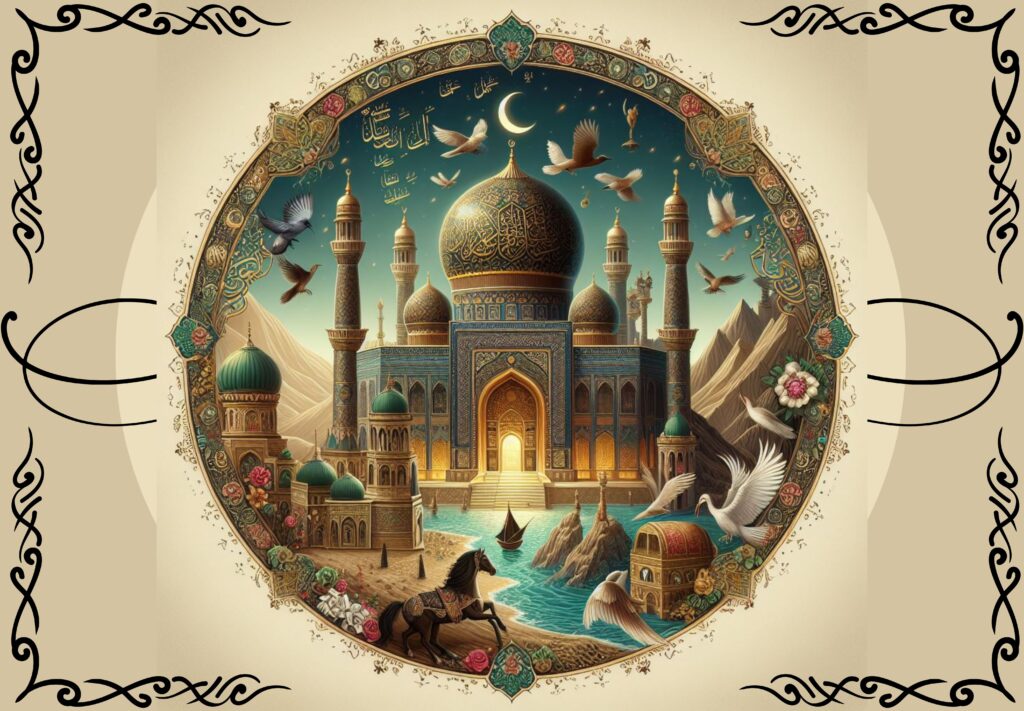
Verses from the Holy Quran
The holy book ‘al-Quran’ is the message of Allah Almighty that was descended to the Prophet Muhammad (SAW) via the archangel Jibraeel (Gabriel). The book is filled with verses that emphasise the ideas of foreordination and free will. Some of the verses are discussed here:
Trials Await
“And We will surely test you with something of fear and hunger and a loss of wealth, lives, and fruits, but give good tidings to the patient.”
— Surah al-Baqarah (2:155)
Divine Knowledge
“Not a leaf falls but that He knows it.”
— Surah al-An’am (6:59)
Allah’s Will
“Surely, Allah does what He wills.”
— Surah Ibrahim (14:27)
Freedom’s Choice
“So whoever wills, let him believe; and whoever wills, let him disbelieve.”
— Surah al-Kahf (18:29)
Divine Omniscience
“Do you not know that Allah knows what is in the heaven and earth? Indeed, that is in a Record. Indeed, that for Allah is easy.”
— Surah al-Hajj (22:70)
Proximity Within
“And We have already created man and know what his soul whispers to him, and We are closer to him than [his] jugular vein.”
— Surah Qaf (50:16)
Predestined Creation
“Indeed, all things We created with predestination.”
— Surah al-Qamar (54:49)
Recorded Events
“No disaster strikes upon the earth or among yourselves except that it is in a register before We bring it into being – indeed that, for Allah, is easy.”
— Surah al-Hadid (57:22)
Divine Permission
“No disaster strikes except by permission of Allah.”
— Surah at-Taghabun (64:11)
Heart’s Knowledge
“He knows what is in every heart.”
— Surah al-Mulk (67:13)
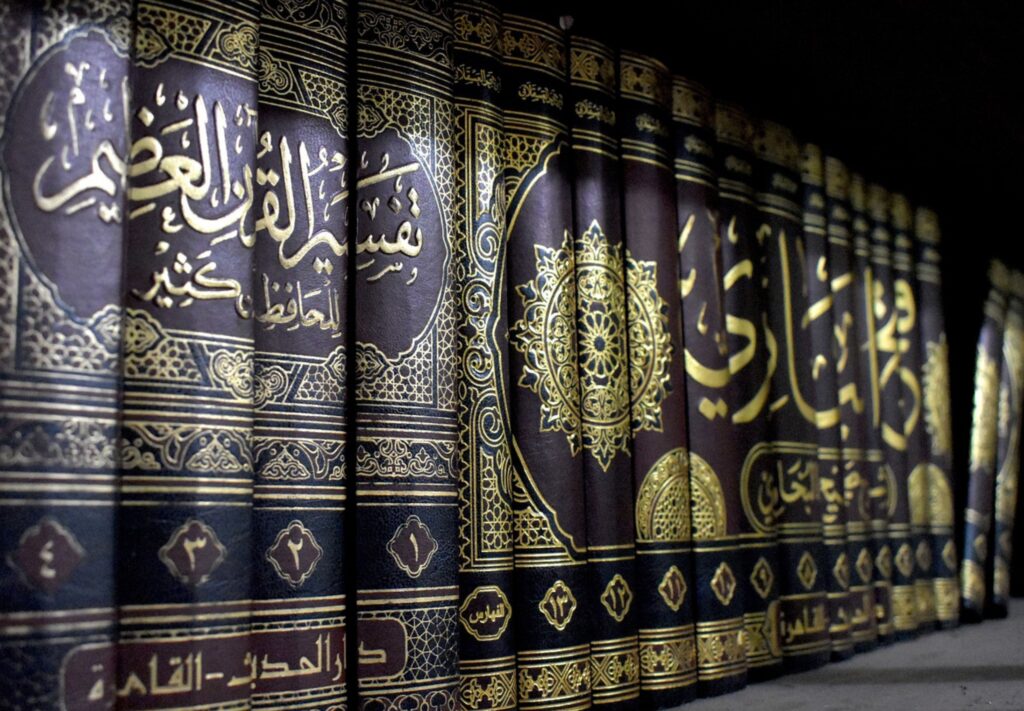
Hadith Nabawi (SAW)
The life of Prophet Muhammad (SAW) is the finest model for understanding destiny. The Prophet (SAW) himself faced numerous challenges and complications throughout his life, including persecution, rejection, and hardship.
Despite the difficulties he confronted, he maintained an unwavering belief in the wisdom of Allah and His plan. He encouraged his followers to trust in Allah’s plan while actively engaging in righteous acts and searching for guidance through prayers and supplications.
There are Hadiths on destiny, and some of the Hadiths about destiny are given here:
Believer’s Fortune
“Strange is the affair of the believer; verily, all his affairs are good for him. If something pleasing befalls him, he thanks Allah, and it becomes better for him. And if something harmful befalls him, he is patient, and it becomes better for him.” (Sahih Muslim)
Seeking Guidance
“Be mindful of Allah, and He will protect you. Be mindful of Allah, and you will find Him before you. When you ask, ask Allah, and when you seek help, seek help from Allah.” (Tirmidhi)
Intentional Deeds
“Actions are judged by intentions.” (Sahih Muslim)
Acceptance of Decree
“If something befalls you, do not say, ‘If only I had done such and such,’ but rather say, ‘Allah has decreed, and what He wills, He does.” (Sahih Muslim)
Historical Anecdotes
There are events in history when the righteous, who declared the oneness of Allah, trusted their matters in the divine hands. They faced tough times without complaining or doubting and accepted the hardships gladly, as they had a firm belief in Qadar. Here are a few of these incidents:
Endurance through Faith: Prophet Ayyub (Job – PBUH)
Prophet Ayyub (PBUH) was put through a severe skin disease, but he never complained about it. He withstood the suffering with conviction in divine order. His story describes endurance and surrendering to the will of the Creator.
Ayyub (PBUH) encountered destitution and criticism from folks around him, but he never showed dissatisfaction. Although his health was poor and his righteousness was questioned, he remained patient and placed his trust in Allah’s wisdom.

Allah’s Plan Unfolds: Prophet Yusuf (Joseph – PBUH)
Prophet Yusuf’s (PBUH) life is a living example of how Allah’s divine plan plays a role in an individual’s life. He experienced betrayal from his brothers and was imprisoned unjustly in Egypt for a crime that he had not even committed, but his faith stayed strong.
The ability to interpret dreams became a blessing for him, and it led him to liberation and eventually to a powerful designation in the empire. Yusuf’s (PBUH) story shows how hardships are aligned with Allah’s plan.
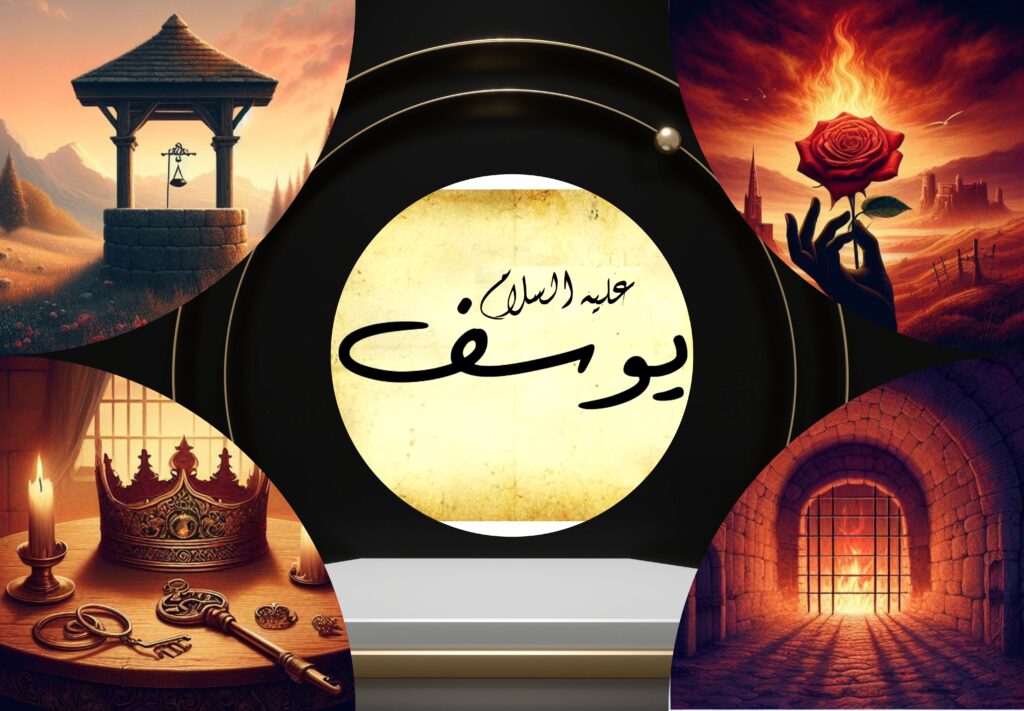
Divine Wisdom Unfolded: Prophet Musa and Khidr (PBUT)
In the famous story about Prophet Musa and Khidr (PBUT), there is a deep lesson about Allah’s boundless wisdom. Musa (PBUH) embarked on a journey with Khidr (PBUH); he witnessed events that left him in awe, and he became curious.
Musa (PBUH) was puzzled and interrogated about the purpose of the actions repeatedly. At first, he (Khidr) remained quiet, but then he explained the hidden wisdom behind those actions that looked beyond human understanding.
Thus, Musa (PBUH) learned to trust Allah’s plan even when events looked confusing. This story shows us the depth of Allah’s scheme and clarifies the concept of fate.

Umar ibn Al-Khattab (RA) Faith in Qadar
Once, the second caliph of Islam (Umar Ibn al-Khattab) was giving a sermon and said that he had never regretted anything but the words he once said. He wished that he had said something better than those words.
Someone asked him whether Qadr prevented him from saying something else. Umar replied by scolding; may his mother mourn his death! Of course, Qadr had nothing to do with that. If he could say something against the will of Allah,
Umar (RA) was assassinated by a Persian slave named Abu Lulu. He believed that his death was a fragment of Allah’s plan. He once said,
“If all mankind were to gather together to harm me, they would not harm me except if Allah had written something for me. And if they all gathered together to benefit me, they would not be able to do so except if Allah had written something for me.”
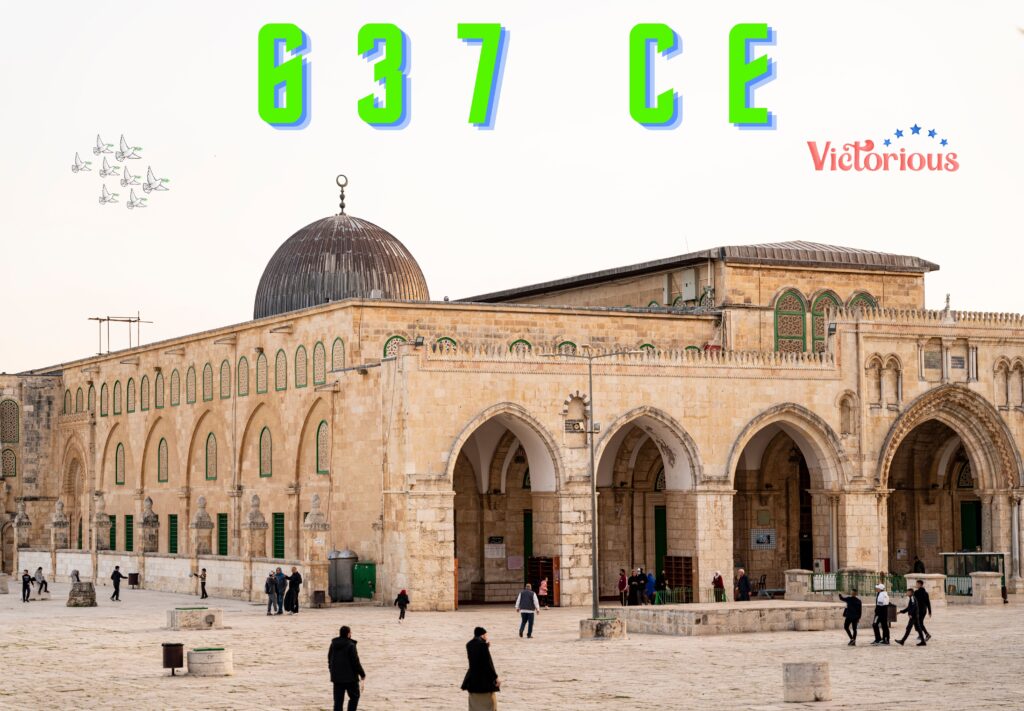
The Steadfastness of Imam Ahmad ibn Hanbal (RA)
Imam Ahmad ibn Hanbal (RA) was a great Muslim scholar. Amid a religious dispute during al-Ma’mun’s reign regarding the nature of the Quran, he faced severe trials for his unwavering belief. He went through imprisonment and torture for refusing to compromise.
He was against the idea that the Quran was created and opposed this debate inflexibly. After going through hard times, his resolve grew sturdier. In the end, public opinion shifted in his favour. With his conduct, he showed firm belief in Allah’s plan.
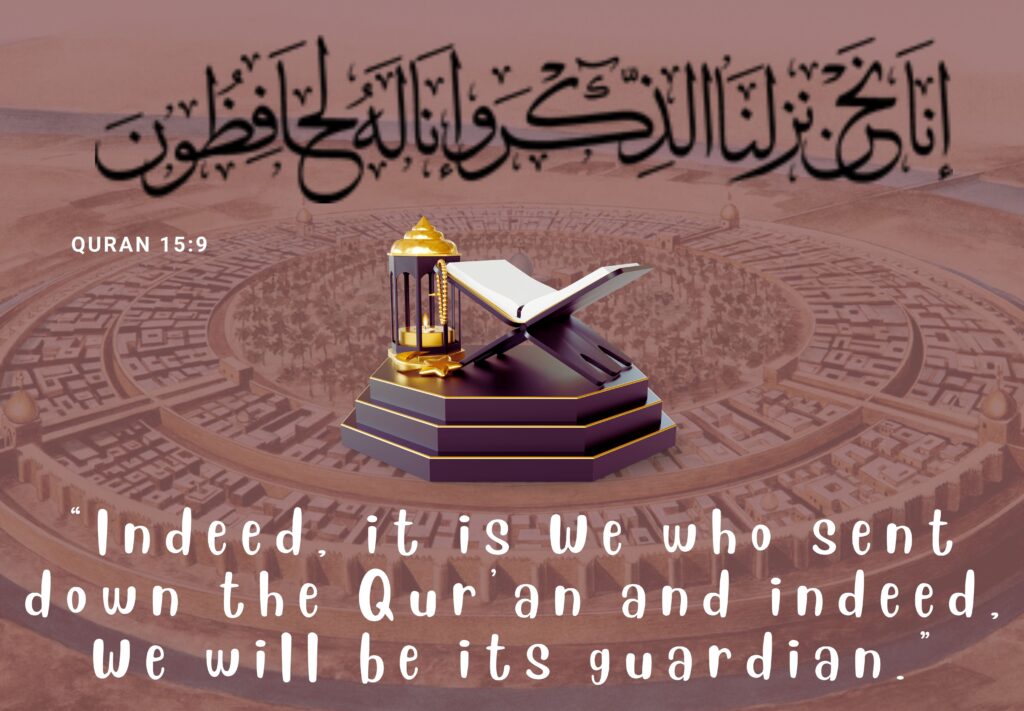
Everyday Experiences
The examples below from real life show the impact of belief in destiny. These can act as a guiding force and offer strength, solace, and spirit amidst the sufferings of life.
Strength in Adversity
Consider a person who is undergoing unexpected trials but is not losing hope. Rather, he finds comfort and strength in thinking about Qadar. The faith that each tribulation is part of a divine plan acts as a heart of resilience for him. It guides him through hardships with a sense of calmness and resolve.
Academic Trials
A student is striving for academic success but is meeting setbacks. His faith in fate encourages him to exhibit perseverance and trust that outcomes are a fraction of a superior design. This acceptance of heavenly destiny instils confidence in him and enables him to face setbacks with resilience and determination.
Career Uncertainties
Once, a professional was going through suffering and uncertainty. But his acceptance of Qadr enabled him to trust in the unfolding of events and never lose hope. It became a guiding light for him and allowed him to make precise decisions and surrender the outcome to Allah.
Impact on Mental Health
Destiny works as a balm for individuals who are in distress. An advocate of fate views a setback as a stepping stone rather than a stumbling block. Thus, this belief serves as a proactive approach to mental health. It stresses patience, gratitude, and reliance on divine guidance.

Dua and Divine Decree
There is a deep relationship between dua (prayer), Qadar (destiny), and the potential for change in Islamic teachings. It encourages an individual to proactively engage in spirituality while recognising the ultimate authority and wisdom of the divine plan.
Power of Dua (Supplication)
Dua is one of the most fundamental aspects of Islamic teachings, and it is like establishing a connection between a believer and his Creator. It means to sincerely seek guidance, blessings, or assistance from Allah.
Islam highlights the predestination of events. But it also encourages believers to engage in dua keenly. The power of dua is not about altering the divine plan encoded in Qadar. Rather, it is about seeking divine intervention and guidance in an individual’s affairs.
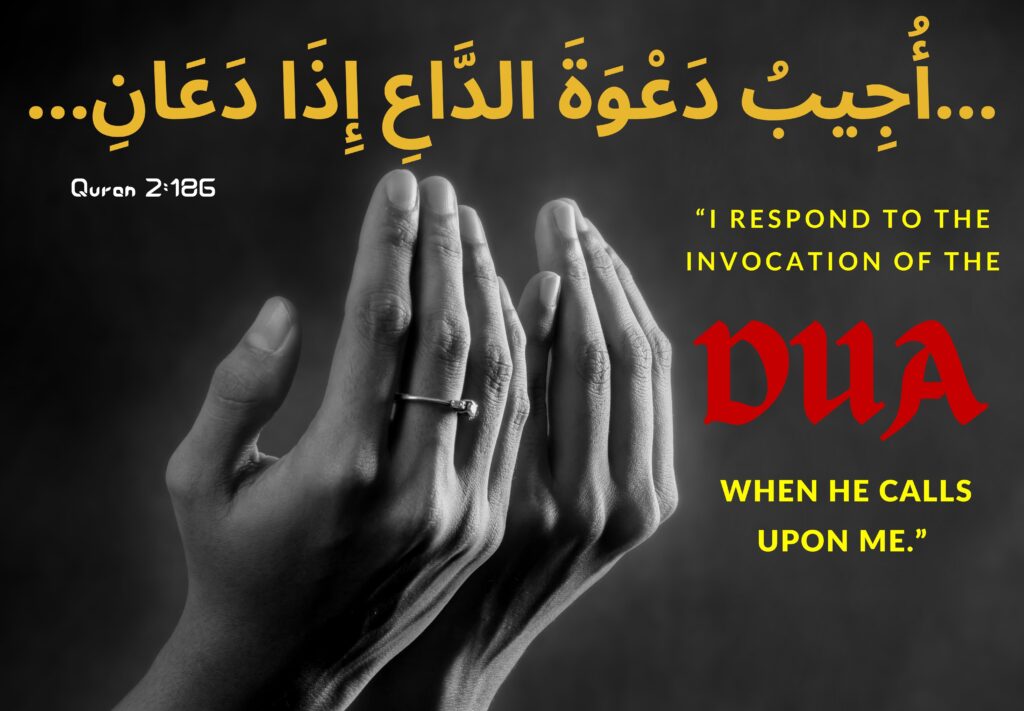
Role of Dua in Changing Qadar
Supplication is like a conversation between a person and his Creator. It is a humble request for guidance, mercy, or a change in circumstances. In Islam, supplication is considered a way by which believers display their reliance on Allah’s wisdom and strive for His help.
Dua (supplication) becomes a source that grants a believer solace, strength, and hope. He understands that destinies are written. But the action of dua indicates the essence of faith, courage, and dedication to Allah’s mercy and benevolence.
In Search of Guidance through Dua
Qadar does not only recognise predetermined events but also values the impact of sincere supplication. A believer understands that Allah’s decree is certain. But His mercy may respond to the earnest prayers of the believer and influence events within His plan.
A traveller, who was going on a journey, was praying before setting out. His supplications may not change the final destination, but they may positively influence the journey. So, dua assures the supremacy of Qadar while having hope and belief in the potential for positive change through divine intervention.
Qadar and Personal Growth
Belief in Qadar is like a spark for personal and spiritual growth. It promotes introspection and understanding of the journey of life. It is not just a philosophy but a catalyst for personal evolution. It urges individuals to learn from life’s experiences and grow.

A Tool for Spiritual Development
When we see Qadar from a spiritual perspective, it becomes a tool for self-discovery and connection with Allah Almighty. It does not only develop an attitude of patience and acceptance during trials but also raises trust in Allah’s wisdom. This acceptance fuels personal growth.
Consider a gardener who grows different kinds of plants and knows that each season has different challenges and opportunities. He witnesses both the blooming and withering of plants but continues to plant them every season. Similarly, belief in Qadar develops a growth mindset amid changing life phases.
Contemplation and Improvement
A believer gets a deeper understanding of the purpose of life and the impact of his actions within Allah’s plan. It guides him toward self-analysis. This belief encourages him to examine the trials of life and gain wisdom from the ups and downs of life.
In moments of success, this belief enables a sense of gratitude and modesty, and in moments of failure, it grants the power of patience. Thus, a believer recognises that every achievement is part of a greater divine plan.
Conclusion
Believing in Qadar is a fundamental concept in Islamic teachings. It holds great significance for believers to navigate through the uncertainties of life. It helps to find comfort during challenging times. It serves as a basis for faith in the divine plan.
The belief helps an individual understand the delicate balance between Allah’s decree and personal actions. It nurtures unwavering trust in Allah’s wisdom and gives inner peace amidst difficulties. It is a source of strength during tough situations and encourages patience and resilience.
Ultimately, it is not merely a theoretical principle but a practical application. It is a belief that is responsible for shaping attitudes, actions, and perspectives. It stresses the need to embrace uncertainties with faith, believing that every adversity is a part of the greater divine plan.
Frequently Asked Questions (FAQs):
Is belief in Qadar fatalistic, meaning we have no control over our lives?
No, belief in Qadar does not negate personal responsibility or free will. It recognises a divine plan while allowing individuals to make choices and take actions within that framework.
Can prayer (dua) change our destiny according to the concept of Qadar?
While Qadar emphasizes a predestined divine plan, sincere supplication (dua) is a way to seek guidance and blessings. Allah may respond to prayers within the framework of His decree.
Does belief in Qadar mean that everything is predetermined and we have no say in our futures?
Islamic belief in Qadar acknowledges predestination but also recognizes human agency. It’s about reconciling divine decree with human choices within Allah’s omniscient knowledge.
How does belief in Qadar help during difficult times or trials?
Belief in Qadar acts as a coping mechanism, providing solace and strength. It encourages resilience by fostering acceptance that every trial is part of a divine plan.
Can understanding Qadar influence our decision-making processes in daily life?
Yes, understanding Qadar encourages informed decision-making while surrendering the outcome to the divine will. It emphasises responsible choices within Allah’s decree.
